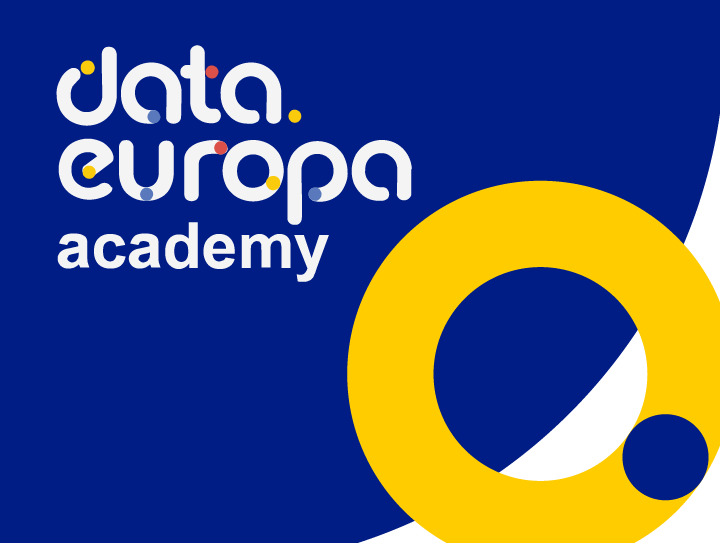Rasta 589 rezultatai (-ų)
Skip results of view Naujienos

In today’s data-driven world, understanding and leveraging open data is a useful skill to have. The data.europa.eu e-learning programme offers an accessible and engaging way to enhance your knowledge of open data, whether you’re a policymaker, researcher, student, or simply curious about the field. Designed with both beginners and advanced learners in mind, this comprehensive programme will transform your understanding of how open data can drive innovation, inform decisions, and create societal value. The programme covers a wide range of topics, making it a one-stop resource for mastering open

Our latest publication, the 2024 Geospatial Trends Report , offers a comprehensive analysis of the latest advancements in geospatial data. The report explores emerging trends and their implications for the open data community, emphasising the transformative potential of geospatial technologies. As we move further into a data-driven future, understanding these trends is essential for maximising the value of geospatial data. A standout feature of the report is its focus on geospatial digital twins. These digital replicas of physical environments are transforming the way we interact with and

We are excited to share the findings from our 2024 User Survey Assessment, an initiative designed to deepen our understanding of the data.europa.eu user community. The survey, conducted last September and October, explored a range of topics, including user demographics, preferred content, and experiences with our platform. Since its launch in 2022, this annual assessment has allowed us to identify trends and track changes over time. One key trend revealed that the majority of our users are aged between 35 and 54, and their representation within our community has grown steadily over the years

2024 has been an eventful year for the data.europa academy , highlighted by a series of events that engaged participants from across Europe and beyond. Through 15 webinars, four panel discussions, two workshops, and one focus group, the academy explored key topics ranging from a series on artificial intelligence in data ecosystems to high-value datasets. In total, we have been happy to host more than 5,400 participants during the 2024 webinars! webinars! Building on key themes, the academy organised two new workshops for students to equip them with the knowledge and tools necessary to

Avoindata.fi is Finland's national open data catalogue, developed by the Digital and Population Data Services Agency . The platform provides access to over 2,300 datasets across diverse categories, including regions and cities , and science and technology . Its advanced search capabilities, including a map-based filter for location-specific data, make it easy for users to find the information they need. The portal also features a comprehensive user guide explaining what open data is and how to effectively find and use it. Additionally, 72 APIs enable developers to seamlessly integrate Finnish

As the year draws to a close, the data.europa.eu team extends our warmest holiday greetings to all our data providers and the data community. This year has been remarkable, filled with significant milestones and collaborative efforts that have furthered the open data movement across Europe. We are grateful for your continued support and engagement in 2024. This year, we celebrated the 10 th anniversary of the Open Data Maturity report , a testament to a decade of progress in open data initiatives across Europe. Th e report highlighted the progress made by various European countries in

In November, the data.europa.eu academy hosted two informative webinars, continuing its popular ‘ Data Spaces ’ series and launching the new ‘ Smart Cities ’ series. The Data Spaces webinar focused on data management, whereas the Smart Cities webinar delved into smart city technologies in Europe. Both webinars demonstrated how data accessibility and innovative technologies are driving innovation across various sectors. The first webinar, ‘Data Spaces: Experience from the European Health and Common Energy Data Spaces’ , explored the European Health Data Space and the Common European Energy Data

Earlier this year, our news piece on the European Environment Agency report reflected upon the latest updates on the European Green Deal . We now look at the role of open data in advancing the EU’s strategy to achieve climate neutrality by 2050. By providing transparent information on different topics, open data empowers policymakers, researchers , and citizens to make informed decisions that support environmental sustainability and a greener economy . The European Green Deal covers diverse areas , from clean energy and sustainable agriculture to circular economy initiatives . Open data

We are happy to announce that, for the tenth time, the annual report measuring the level of open data maturity (ODM) across Europe has been published . This year, the EU-27 countries accomplished a maturity score of 83%! Back in 2015, when the first assessment was conducted, the EU average was just 46%, so this shows great improvement. Seventeen of the participating countries increased their year-on-year maturity score from 2023 to 2024, marking great progress. We can proudly state that we moved from 30 participating countries in 2015 to a total of 34 countries in 2024, covering more of open

As of November 2024, The European Commission’s Joinup platform has transformed into the Interoperable Europe Portal . This change is aligned with the Interoperable Europe Act , which entered into force in April 2024, and promotes collaboration between public administrations, businesses, and citizens to create a more interconnected digital Europe. The portal aims to become the Union’s single point of entry that streamlines access to essential tools and resources for advancing digital public services across the EU. The Interoperable Europe Portal will continue to serve as a cornerstone for open
